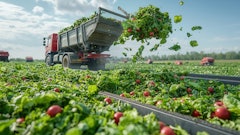CGIAR, the world's largest agriculture research partnership, today announced its funding has doubled from $500 million in 2008 to $1 billion in 2013. Officials say harvesting the fruits of this historic commitment could, among other benefits, lift 150 million people in Asia out of poverty by boosting rice production, provide 12 million African households with sustainable irrigation, save 1.7 million hectares of forest from destruction, and give 50 million poor people access to highly nutritious food crops.
"The challenge of producing more nutritious food to feed 9 billion people in 2050 while climate change threatens to roll back years of development progress making some agricultural lands unproductive cannot be underestimated," said Rachel Kyte, Chair of the CGIAR Fund Council and World Bank Vice President for Sustainable Development. "Climate change disproportionately hurts the poor and most vulnerable." "Investment in CGIAR pays big dividends, making it one of the 'best bets' for sustainably eradicating poverty, hunger and malnutrition," said Carlos Pérez del Castillo, Chair of the CGIAR Consortium Board.
"With a proven track record for large-scale development impacts, few investments, if any, make more economic and humanitarian sense than do investments in CGIAR."
CGIAR works with hundreds of partners to develop innovative solutions, tools, and technologies for the benefit of the world's poorest people.
It seeks to bring cutting edge science to bear on a wide range of issues facing millions of farmers and other poor smallholders in developing countries who collectively generate nearly 70 percent of the world's food production.
"The $1 billion in funding will help finance CGIAR's 16 global research programs and accelerate the development of scientific, policy and technological advances needed to overcome complex challenges - such as climate change, water scarcity, land degradation, and chronic malnutrition, greatly improving the well-being of millions of poor families across the developing world," said Frank Rijsberman, CEO of the CGIAR Consortium.
To read more, click HERE.















